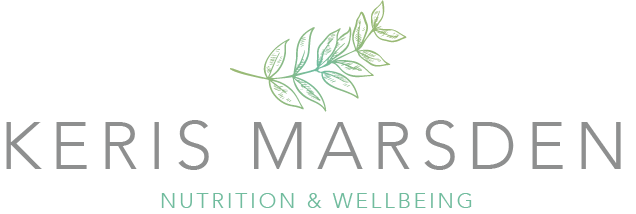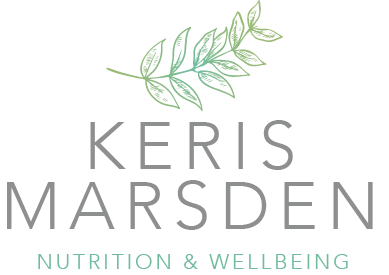Get your metabolism geared for menopause
The doom and gloom around menopause messaging drives me mad at times.
Imagine discomfort on every level and it’s pretty much covered in the list of anticipated symptoms, including:
An expanding waistline no matter what you eat and how much you exercise
Brain fog and memory issues
Prolapses, vaginal dryness and urinary incontinence
Insomnia and night sweats
Nagging fatigue or complete exhaustion
Mood swings and possibly clinical depression
Hot flashes and Itchy, dry skin
Hormonal breakouts or acne
Achey, painful joints
The fear mongering has gone up a notch as menopause awareness has increased (which is fab) to help sell a wealth of consumer products targeted at these symptoms.
Whilst the latter may be beneficial to some degree, they can distract from all the incredibly effective nutrition and lifestyle habits women can implement at any stage in their life.
The sooner the better as even teenage habits influence menopause experience and disease risk, but it’s never too late to have an impact on your menopause journey either.
In fact, perimenopause the years before this kicks in is a great time to prepare your body for the changes ahead.
Apply a metabolic focus to menopause
Most people associate the word metabolic with weight loss.
Whilst the term metabolism describes your body’s ability to utilise calories for energy and maintain a healthy weight it also determines cellular function throughout the body.
It’s your cells that do everything. They make hormones and brain chemicals, build tissues, repair joints, strengthen bones and more.
If your cells have the right energy supply, adequate nutrients and time out to detoxify and defend against threats then your health is optimised.
Four steps to optimising your menopause metabolism
The following steps can help gear up your body for the menopause transition.
1. Re-composition your body
For decades us women have been told to slim down, shrink our body to size 0 if possible.
But gearing up for menopause and keeping longevity in mind your focus should be growth.
Strong muscle and building bone are an absolute priority.
Instead of weight loss reframe your nutrition and exercise around transforming your muscle: fat ratio.
Your protein intake, physical activity and resistance training are key factors in making this happen so making these a regular feature in your weekly routine is essential.
More muscle will help you metabolically by controlling your blood sugar levels more effectively.
This means you have more energy, less hunger, a daily higher calorie burn, greater exercise, improved sleep and even better brain function.
Muscle mass also works synergistically with bone health.
Stronger muscles stimulate bone building activity and improve bone density. They also stabilise joints and lower your risk of injury.
2. Learn the art of convenient healthy food
Eating nutrient dense foods that optimises metabolic health is non negotiable as you approach menopause. It means the convenient options of toast, cereal, sandwiches, snack bars and takeaways need to limited and maybe ditched altogether.
Your meal choices will now require a little more thought, but they don’t have to involved hours of meal prep and batch cooking.
Figuring out a couple of quick breakfasts and lunches is a great start.
Eggs anyhow, protein smoothies, Greek yogurt, smoked salmon, avocado, overnight oats, soups, salads, low sugar fruits, nuts and nut butters can make up a stack of quick, tasty options.
Also get confident making smarter choices on the go and eating out.
I can dive into any supermarket and grab a bag of salad, cooked protein (fish, tofu, prawns or chicken), hummus, fruit and nuts and whack together a tasty meal.
Some days my lunch is a tin of tuna in olive oil with half an avocado and a few squares of dark chocolate for dessert. This leaves me happily full and is so fast I have extra time to bag a lunchtime walk.
Dinner can be microwave lentils (adding tamari sauce transform these) with pan fried fish and green veg sauteed in olive oil. Then frozen berries and yoghurt make a tasty, high protein dessert.
With a little practice this becomes second nature and the benefits make it easy to stick to.
3. Support your body with nutrients and supplements
You’re spoilt for choice these days with perimenopause and menopause supplements but it’s important to note you can’t out supplement poor nutrition and lifestyle habits.
There’s no magic pill that will give you the skin, hair, nails and energy of your 20yr old self.
If there was I’d be all over it 🤣
That said it’s important to protect against nutrient deficiencies and specific nutrients may help mitigate some of the metabolic changes that take place with age and declining hormones.
Typically, I recommend magnesium, vitamin D (in the winter), vitamin K2 and a peri or menopause specific multivitamin with sufficient B vitamins, selenium, iodine and zinc to cover basic needs.
Some clients I work with fall short on protein, calcium, iron, vitamin A and omega 3’s, especially if following a vegetarian or plant based diet.
It’s helpful to track a couple of weeks in Chronometer App and ensure you’re meeting your nutrient needs.
You can read more details about the types of supplements I recommend for menopause here.
4. Put yourself first : self love and CBT
Many clients I work with have ended up so busy juggling multiple responsibilities in adult life they’ve forgotten about the most important person…themselves.
I’m also guilty of this myself.
To support your metabolic health requires you to set aside time for self-care in the form of exercise, chance to source and cook nutritious food, space to relax and do things that make you happy.
This not only keeps you healthy, it also keeps your mood balanced, lessening the need for sugar, cake, alcohol, excess caffeine and other things that might work against you.
Putting the needs of others before you own may seem admirable and the right thing to do but the ‘disease to please’ can lead to all sorts of health issues.
It can also be a symptom of something deeper, like a lack of self-esteem and not valuing yourself.
The physical and emotional changes that occur as you approach menopause require some attention back to you and protecting your energetic, emotional and physical needs.
If you struggle with this then talking therapies (counselling or CBT) can be incredibly helpful and provide the confidence to say no to bosses, partners, family and friends who will all continue to put in requests (demands) that cause you to creak.
Two powerful outcomes for me with CBT have been :
1) Acknowledging my positive traits and that I’m enough, my true team know this and those disappointed by me don’t have my best interests at heart.
2) Understanding I’m not responsible for everyone else’s happiness and health.
If you’d like some help gearing up for menopause or addressing your symptoms you can book a free exploratory call.

